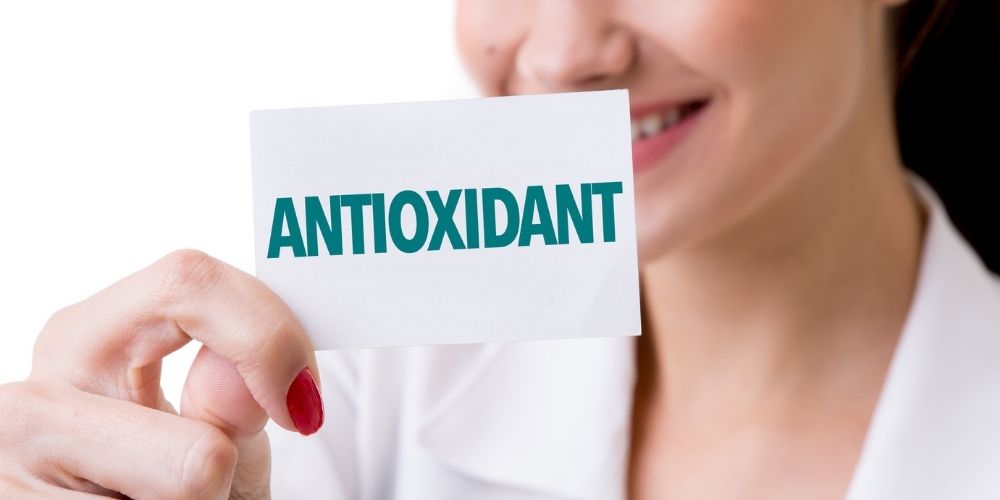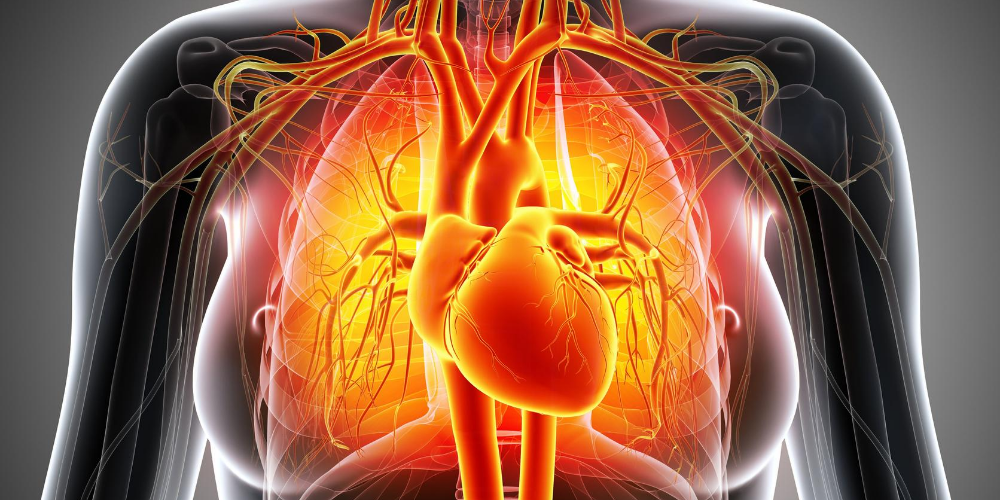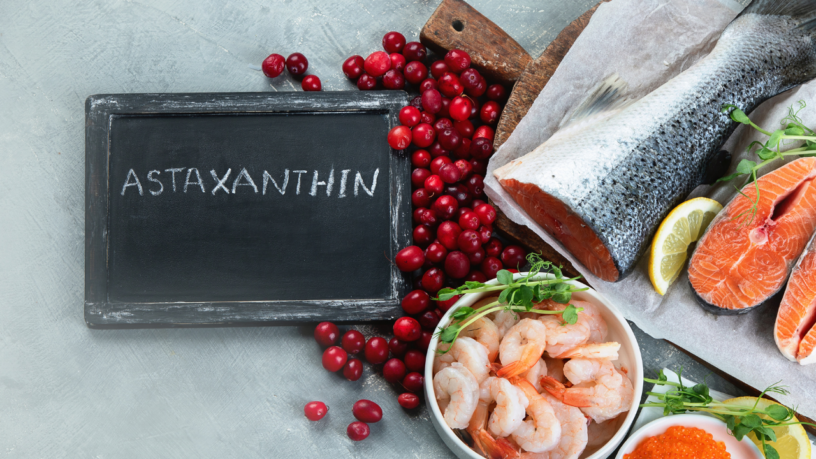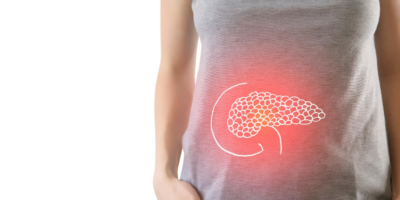Astaxanthin is known as a dark red pigment and is found in marine species, especially algae, salmon, crayfish, lobster and fish eggs, etc. It is not possible for the organism to synthesize this active ingredient, but needs to be supplemented through diet. Haematococcus Pluvialis ( a type of green algae ) is confirmed to be able to synthesize Astaxanthin by itself and its active ingredient content is the highest in the wild with the ratio of 7% of dry weight. Is a carotenoid (Carotenoids are plant compounds also include pro-vitamin A, beta-carotene, lutein, and lycopene) astaxanthin is thought to have antioxidant and anti-inflammatory effects. Astaxanthin benefits many aspects of health, including supporting healthy eyesight, promoting brain and heart health, and even increasing men’s fertility.


1. Top Astaxanthin health benefits
1.1 Astaxanthin health benefits: Anti-oxidant and anti-inflammatory


✅ The antioxidant effects of Astaxanthin have been demonstrated by scientists. The ability to inhibit the formation of harmful free radicals is 14 times stronger than Vitamin E, 54 times more than beta carotene, 65 times more than Vitamin C; The ability to neutralize single-molecule oxygen is 550 times stronger than vitamin E and 6000 times more than vitamin C. Astaxanthin can prevent the active oxygen monomers, inhibit free radicals, protect cell membranes from lipid peroxide and DNA damage. Astaxanthin is called the king of antioxidants. With its powerful antioxidant effect, Astaxanthin is applied in many health protection preparations: promoting health, reducing the risk of chronic diseases, reducing the risk of cancer and neurological diseases. , skin diseases, digestive diseases, arthritis, cardiovascular diseases …
✅ In addition, studies also show that Astaxanthin has an effective anti-inflammatory effect through inhibiting COX -2 inhibiting Prostaglandin (a protein that causes inflammation and pain, strong relaxation, increasing permeability of vascular walls causing swelling, fever … ). They have a selective inhibitory function, do not inhibit cox-1, so when used with anti-inflammatory effects do not cause undesirable effects such as peptic ulcer (such as inhibitory anti-inflammatory drugs cox-1).
1.2 Astaxanthin health benefits: Promote cardiovascular health


✅ A 2014 review study found that the antioxidant properties of astaxanthin may be cardioprotective. By removing free radicals that damage blood vessel tissues, reducing the risk of atherosclerosis thereby limiting cardiovascular complications such as hypertension, stroke, and heart attack. Interest in astaxanthin for heart health benefits dates back to 2000 when a Japanese study reported that 24 adults prescribed astaxanthin in doses of 1.8 to 21.6 milligrams daily. Help lower LDL-cholesterol (bad-cholesterol) after one year. Moreover, the level of LDL reduction corresponds directly to the increase in astaxanthin dose.
1.3 Astaxanthin health benefits: Enhance vision


✅ Macular degeneration is an age-related eye condition characterized by progressive damage to the central part of the retina, resulting in blurred vision and loss of vision. Antioxidants like vitamin C, vitamin E, and beta-carotene are known to slow down macular degeneration. Astaxanthin is water-insoluble but fat-soluble so it can pass through the blood-brain barrier, retinal blood barrier (beta-carotene and lycopene do not have this ability) so it accumulates in the retina, anti-oxygen effect chemical, anti-inflammatory, anti-macular degeneration, reduces the risk of cataracts, retinitis, reduces blindness. Astaxanthin also works to protect the eyes from the effects of ultraviolet rays and light intensity.
✅ According to a small 2008 study published in ophthalmology, people with macular degeneration provided daily vitamin C supplements (180 mg), vitamin E (30 mg), zinc (22.5 mg), and copper. (1 mg), lutein (10 mg), zeaxanthin (1 mg), and astaxanthin (4 mg) have experienced significant improvements in the function of the central retina after six and 12 months. A similar study in 2012 reported that a combination of lutein (10 mg), zeaxanthin (1 mg), astaxanthin (4 mg), and antioxidant supplements improved visual sharpness and recognition.
1.4 Astaxanthin other health benefits


- Improve brain health: As you get older, your risk of developing neurodegenerative disorders like Alzheimer’s or Parkinson’s disease continues to increase. These conditions, which are characterized by the gradual loss of nerve cells in the brain, can lead to symptoms such as dementia, confusion, tremor, agitation, and anxiety. Research suggests that astaxanthin benefits brain health by preserving cognitive function. In a 2016 animal study, for example, supplementing with astaxanthin increased the formation of new brain cells and enhanced spatial memory in mice.
- Diabetes: Insulin resistance is a condition in which your body doesn’t respond to insulin (a hormone that lowers your blood sugar). This condition usually occurs before diabetes and onset type 2 diabetes. Astaxanthin can help improve the body’s insulin response and reduce the risk of type 2 diabetes. In addition, Astaxanthin also reduces the risk of eye complications from diabetes. However, astaxanthin-induced hypoglycemia in people with diabetes is negligible.
- Increasing male fertility: Research has found that astaxanthin is beneficial for male fertility and can help improve sperm quality. A small study was done at Ghent University Hospital actually shows that astaxanthin improves the movement of sperm cells and enhances the ability of an egg to fertilize an egg. In addition, men treated with astaxanthin achieved a higher pregnancy rate than the placebo group.
2. Notes when using Astaxanthin
✅ Astaxanthin appears to be safe and well-tolerated. No side effects have been reported. However, pregnant, lactating, and children should consult a doctor before use, especially when intending to use it for a long time.
Recommended for you
🎁 NOW Supplements, Astaxanthin 4 mg


✅ Since 1968 NOW has been a leader in the natural products industry. Even when healthy foods and natural supplements weren’t mainstream, we’ve never wavered from our mission – to provide value in products and services that Empower people to lead healthier lives.
✅ NOW Astaxanthin is a naturally occurring carotenoid, and due to its unique structure, it performs an important role in cellular free radical protection and healthy immune system responses. NOW Astaxanthin is derived from Non-GMO Haematococcus Pluvialis microalgae and has naturally occurring lutein, canthaxanthin, and beta-carotene. Directions: As a dietary supplement, take 1 soft gel daily with a fat-containing meal.






Leave a Reply